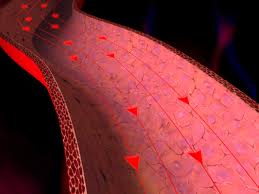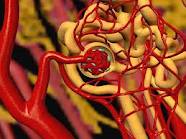Raised blood pressure is labeled as hypertension. In realism, blood pressure of an individual tends to increase with advancing age. So, term hypertension will be used when blood pressure exceeds the normal range for a particular age group.
Unattended blood pressure can lead to a number of serious complications including stroke, heart diseases, kidney failure, etc.

Remarks:
Hypertension is very common in general population. However, in 95% of cases a specific underlying cause of hypertension cannot be pointed out. This hypertension is labeled as essential hypertension and is believed to be related to genetic and heredity factors. There are multiple factors that increase chances of hypertension significantly: Age, Obesity, High levels of body fats (cholesterol), Excess consumption of alcohol and smoking, Food (more salt intake), Life-style factors (lack of exercise, lack of sleep, mental stress, etc). There is a very small group of cases where hypertension is a result of some specific disease condition in the body and is labeled as secondary hypertension.
It can be easily perceived that hypertension is a constitutional disorder as constitutional defect (genetic factors) is at the base of it and the disorder itself has impact on entire constitution of an individual. While treating hypertension, the treatment needs to be planned to focus at a root level: to affect the genetic tendency. Homeopathy does that precisely.
Role of homeopathic treatment:
Homeopathy can play major role in management of essential or secondary hypertension. Timely administered homeopathy medicines can assist in preventing further complications of condition. Life-style modification with moderate exercise, weight reduction, salt restriction can enhance the benefits of homeopathy.
In our experience, early cases of hypertension respond to homeopathy much better than those late cases who are already on some antihypertensive medicines for long period of time. Again, homeopathy is not best suited during the acute hypertensive crisis.





